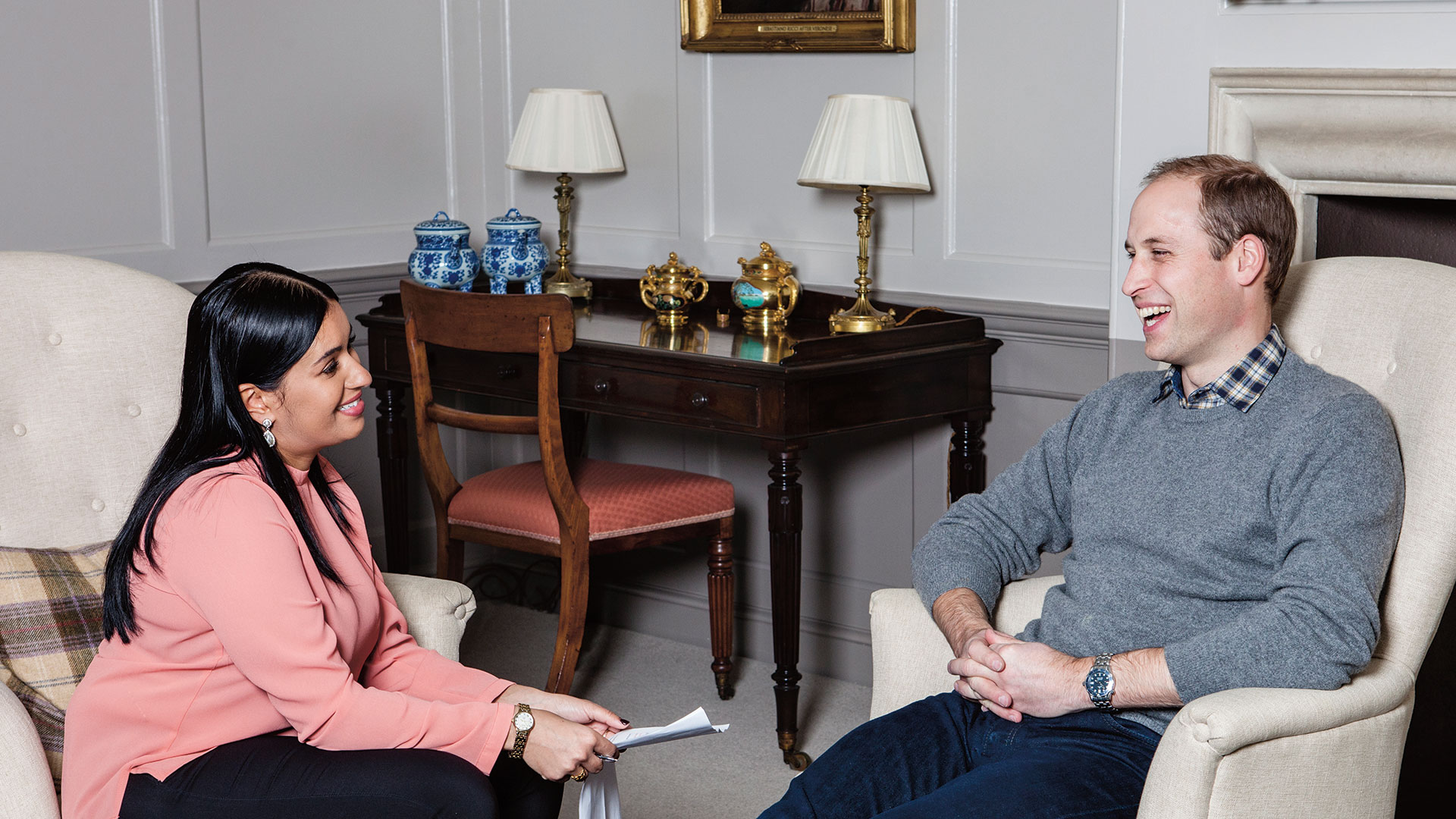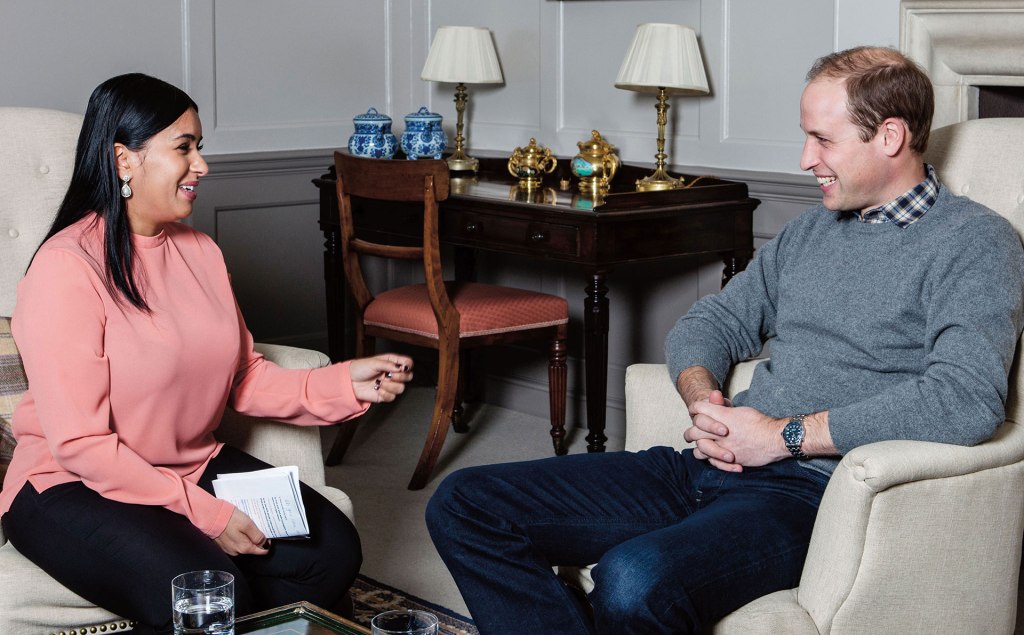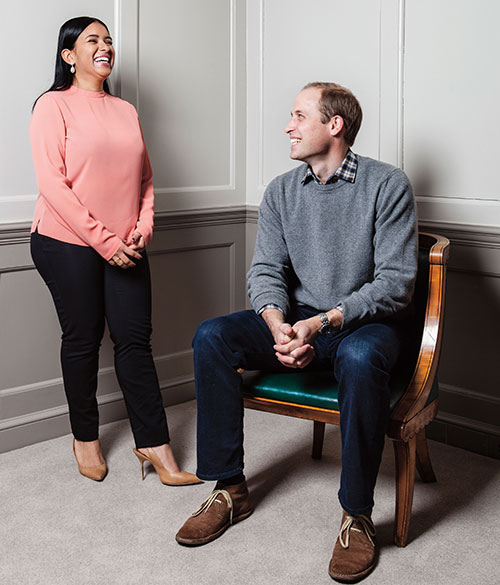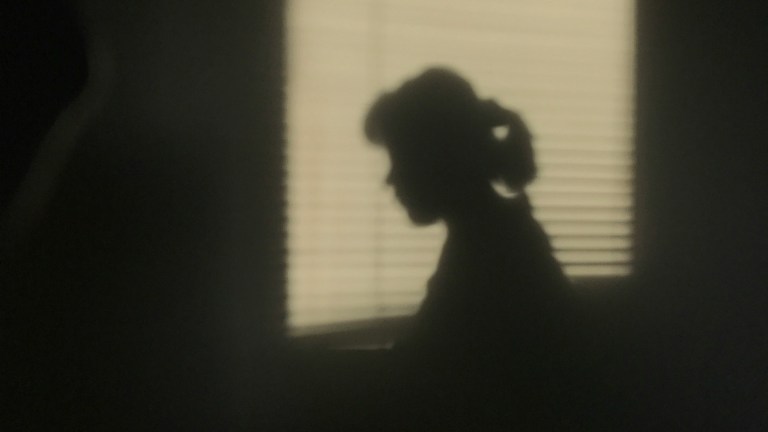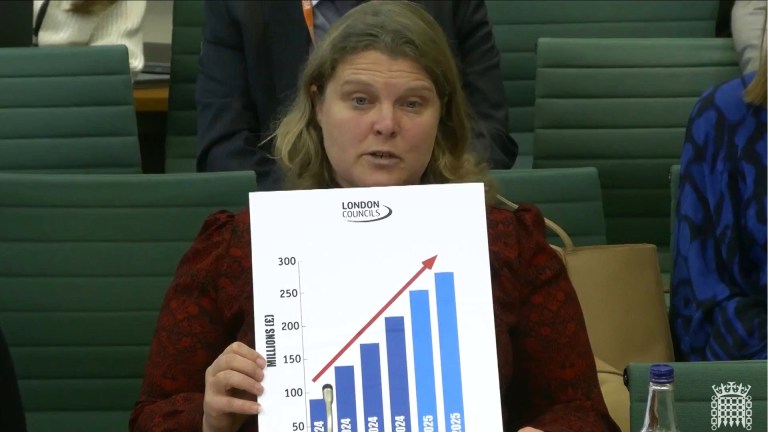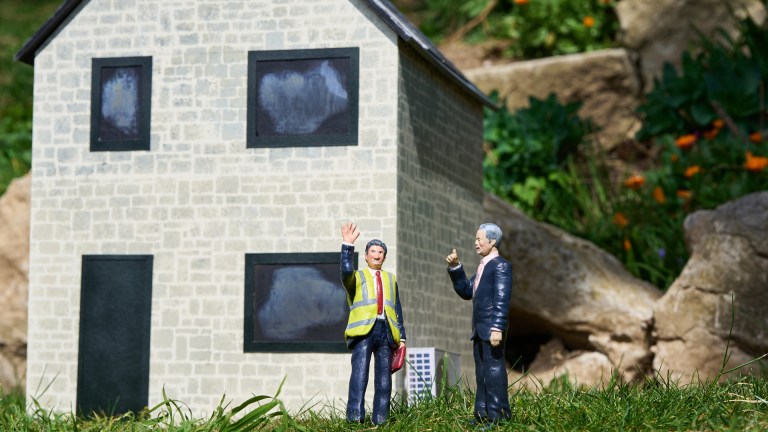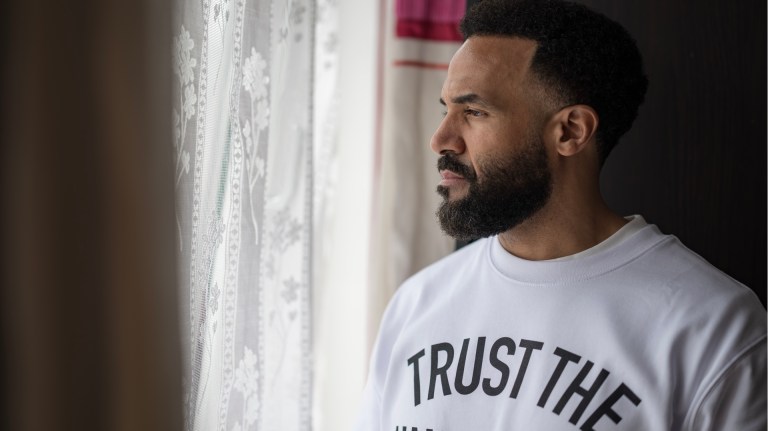Hi William.
Hi Sophia. It’s great to see you again. How are things with you?
I’m now in my last year studying journalism, so it’s an exciting time. How’s your job? What’s it like flying a helicopter?
Well, it’s a lot easier than journalism, that’s for sure (laughs). I’m really enjoying my time with the Air Ambulance – it’s fantastic. I work with brilliant people, and the medical side is truly fascinating. We’ve got some of the best doctors in the world and the job they do saving lives is quite something. To feel I’ve contributed in some tiny way to the work… it’s a worthwhile feeling I get at the end of the day.
You’ve visited Centrepoint many times over the years. Why is the issue of youth homelessness so important to you?
I think it goes back to when my mother first took the role when I was a small boy. I was very struck by the people I met and what they were struggling with – sleeping rough, sofa surfing, not having basic comforts a lot of us take for granted. That really struck me at a young age, bearing in mind the gulf for me, growing up in a palace, and seeing the other end of the spectrum where others were faced with huge personal challenges and were overcoming them. That was powerful to see at a young age. In today’s western world, with all the advancements and privileges we have, the fact some people don’t have a bed or a roof over their head is quite ridiculous.
Advertising helps fund Big Issue’s mission to end poverty
With all the advancements and privileges we have, the fact some people don’t have a bed or a roof over their head is quite ridiculous
You’ve met a lot of young people who have been through homelessness. Have there been any stories that really stayed with you?
It’s hard to pick people out. But something that did live with me for a long time was meeting an Eritrean guy whose entire family was killed in Eritrea. It was probably one of the closest times I’ve ever come to fighting back tears of emotion listening to someone tell their story. I think seven members of his family had been killed, and he found himself here with no one in the world left to look after him. And Centrepoint was the organisation to give him the network of support that allowed him to rebuild his life. I was really blown away by that. And there are so many stories like that.
- OUR INTERVIEWER
Sophia Kichou is 24, and in her final year studying for a degree in journalism at City University, London. Her mother died when she was eight and she grew up in Uganda with her aunt. At 18 she wanted to reconnect with her father in London, but it wasn’t the safe home she was promised. She had to leave and ended up sleeping in a hostel. She found support at Centrepoint, and began working towards her dream of becoming a journalist. A report on youth homelessness won Sophia ITV’s Breaking Into News competition. She was also a member of Centrepoint Parliament, a group of young people that successfully campaigned to protect parts of the Education Maintenance Allowance.
My sister and I were young when we lost our mum. I was eight, a little younger than you when you lost your mum. I couldn’t live with my dad, so at 18 I was homeless, having to go from place to place. Do you think people understand the kind of things people go through?
For me, seeing people overcoming personal challenges, the adversity you and others have fought through – it’s incredibly moving and powerful. And it’s what gives me the confidence that we can beat the problem. I think if more people can understand what you and others have gone through, and how you’ve turned your life around, they would understand more.
Do you think we can ever end youth homelessness?
I do think it’s achievable. There are 136,000 young people in England and Wales in need of emergency support, yet only 16,000 are officially accepted as homeless. It shows it’s still a huge problem we haven’t addressed fully. I would love the country to wake up to the issue. It’s complex, but it’s fixable. I do strongly believe that.
Advertising helps fund Big Issue’s mission to end poverty
You slept outside for a night in a London alleyway back in 2009. I heard you almost got run over by a road sweeper truck…
Well, that might have been a slight exaggeration (laughs).
Was it difficult? Did it show you the reality of homelessness?
No, it couldn’t show me the reality. I thought it was important to spend one night doing that, but I can’t even remotely pretend that I know what homelessness is like. I had a nice bed to go home to at the end of it. It did help illustrate just how lonely it must be if you had to do that every night, and the vulnerability you are under. I had police protection, and I had Seyi Obakin (Centrepoint’s chief executive) for company, but others face the risk of hypothermia, the risk of abuse and assault on their own.
So it focused your mind on the problem…
It did focus my mind on how desperate young people must be to have to go through that, and some of the methods they might go to in order to get a roof over the heads – self-harming to go to A&E units, committing a crime just to be in a cell. If young people have to go to those lengths then we have to do something about that.
Advertising helps fund Big Issue’s mission to end poverty
When it comes to youth homelessness, do you feel you’ve seen progress?
I think so. I think I’ve seen ups and downs, if I’m being honest. Initially, there was a feeling we – at Centrepoint and other homelessness charities – had a gauge on how big the problem was and we were tackling it. In recent years the problem has got worse. Services are being stretched, as much as they possibly can be. I still believe it’s possible to end youth homelessness. Early intervention is key. The earlier we can tackle young people’s problems, the more likely we are to give them the ability to fix their own future.
Can I ask you about Christmas?
Yes, sure.
I’m spending it with my mentor and her family, and I’m really looking forward to it. What will you be doing on Christmas Day?
Well, if I get any sleep on Christmas Eve it’ll be good, because George will be bouncing around like a rabbit. I think George will be extremely bouncy this year because he’s suddenly worked out what Christmas is all about (laughs). So that will be two children, one who suddenly appreciates Christmas, which could be quite challenging. But I’m looking forward to it.
Advertising helps fund Big Issue’s mission to end poverty
The problem has got worse. Services are being stretched, as much as they possibly can be
And how does the day pan out?
We’ll go to church as a family on Christmas Day, as we always do. Then we’ll watch George try to tackle his presents as he tries to unwrap them. It’s a very different experience at Christmas, having a family of your own. It’d be nice if we got a white Christmas because we haven’t had one in many years.
What are you asking Santa for?
Well, let me see… I would love everybody at Centrepoint, all the young people, to have a happy Christmas and to be safe and secure somewhere. And to have some love in their lives. I know that sounds quite naïve and romantic, but that would be the thing I’d ask for.
Thank you so much for your time.
Lovely to speak to you. We’ll do it again when you’re an anchor on ITV or somewhere like that!
Advertising helps fund Big Issue’s mission to end poverty
CHRISTMAS APPEAL Self-harming, prostitution and committing petty crimes are just some of the desperate measures young people are forced to take to get off the streets at winter. Distressing new research reveals that almost a third of homeless young people (28 per cent) have committed a minor crime in the hope of being taken into custody. And as Prince William discusses in our interview, almost one in five (18 per cent) have attempted to admit themselves to A&E to spend a night in hospital. Centrepoint is urging people to donate this winter so more young people have a warm, safe room, hot meal and support in rebuilding their life. Visit centrepoint.org.uk/donate
Photos shot exclusively for The Big Issue by Louise Haywood-Schiefer at Kensington Palace, November 24 2015
